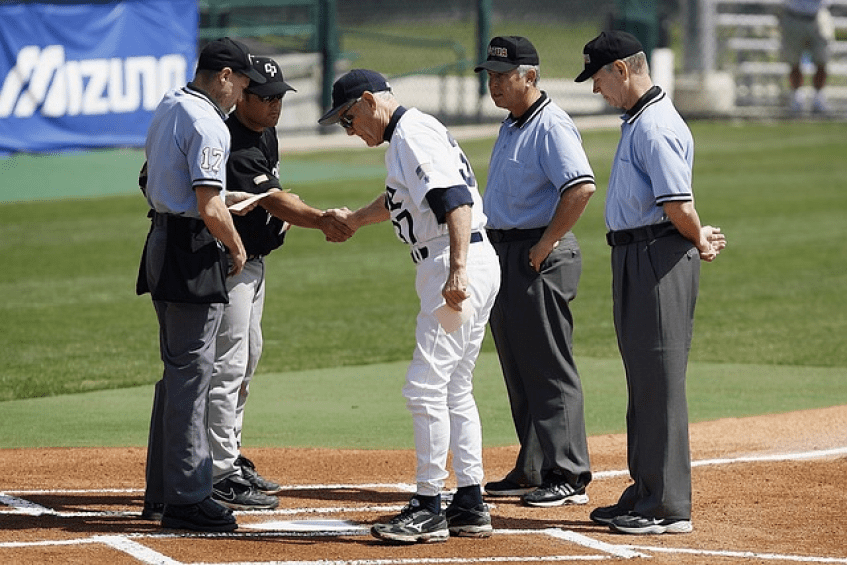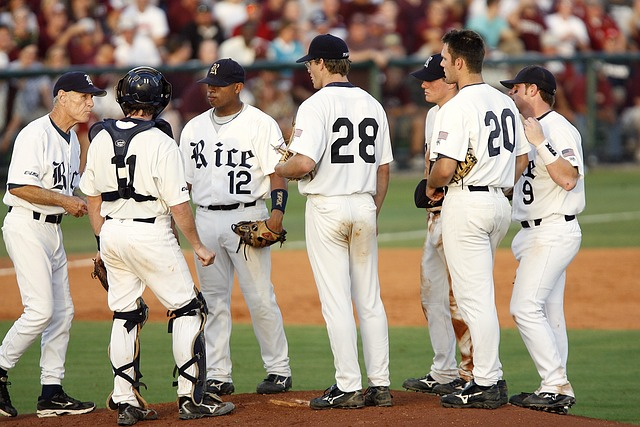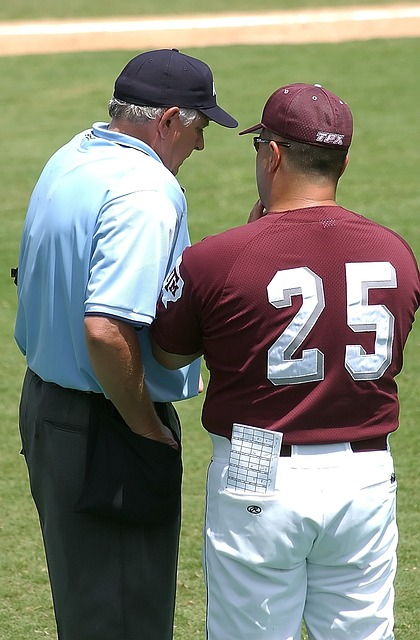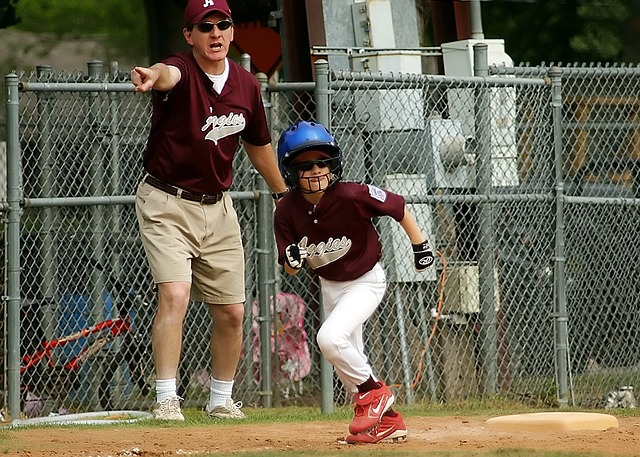
Welcome to my baseball blog! Today, we’re going to dive into the fascinating world of bench coaches in Major League Baseball (MLB). You may have heard the term before, but do you know what a baseball bench coach actually does? Don’t worry, I’ve got you covered! In this blog post, we’ll explore the responsibilities of a bench coach, their impact on the game, and so much more. So, let’s get started!
A bench coach in MLB plays a crucial role in supporting the team’s manager and contributing to the overall success of the ballclub. They are an essential part of the front office and coaching staff and work closely with the manager to make important decisions and guide the team to victory.
So, what are the specific responsibilities of a bench coach? Well, they wear many hats throughout the season. First and foremost, they provide valuable support to the manager. They offer their expertise and insights in decision-making, player evaluations, and strategic planning. They also assist managers in managing the coaching staff, ensuring that everyone is working together harmoniously and pushing towards a common goal.
Communication is key in baseball, and the bench coach plays a significant role in fostering effective communication between the manager, players, and other coaches. They serve as a liaison, relaying information, instructions, and scouting reports to the players. They also help keep the team motivated and focused during games and practices.
When it comes to in-game strategies and adjustments, the bench coach is right in the thick of it. They analyze the opposing team’s performance, identify weaknesses, and provide input on how to exploit those weaknesses. They collaborate with the manager and the other coaches to develop game plans, determine defensive alignments, and make crucial decisions during tense moments of the game. Their knowledge of the sport and their ability to think quickly on their feet are essential to the team’s success.
The salary of a bench coach in MLB can vary based on several factors. Experience is one of the significant factors that influence salary. Bench coaches who have been in the role for many years or have a successful track record may command higher salaries.
The performance of the base coach and the team also plays a role in determining a bench coach’s salary. If a team is performing well, the coaching staff, including the bench coach, may receive bonuses or salary increases as a reward for their success.
Market demand is another factor that affects the salary of a bench coach's responsibilities. If there are few experienced bench coaches available in the market, teams may offer higher salaries to attract top talent.
While the exact figures can vary, the salary range for bench coaches in MLB is typically between $200,000 and $500,000 per year. This figure can increase for coaches with more experience or those who have achieved significant success.
Before we delve deeper into the role of a bench coach, let’s take a moment to understand the different types of coaches you’ll find in the baseball world. Each bench coach assumes and has specific responsibilities and focuses on a particular aspect of the game. Let’s explore a few of these coaching positions:
Hitting coaches or hitting coach, as the name suggests, are responsible for helping players improve their hitting skills. They work closely with batters to analyze their techniques, develop personalized training programs, and provide guidance to enhance their performance at the plate. Hitting coaches have a deep understanding of different pitching styles and use their expertise to train the players to react and adjust their swings accordingly.
Pitching coaches specialize in developing and refining the pitching skills of the team’s pitchers. They work closely with each pitcher, focusing on mechanics, pitch selection, and overall performance. Pitching coaches study opposing hitters, identify weaknesses, and help pitchers strategize their approach on the mound. They play a crucial role in helping pitchers improve their control, velocity, and ability to deceive hitters.
Bullpen coaches oversee the pitchers in the team’s bullpen, which is the designated area where pitchers warm up before entering the game. They ensure that pitchers are prepared and ready to perform when called upon. Bullpen coaches may also assist the pitching coaches in analyzing pitchers’ performances and providing feedback for improvement.
First base coaches have a dual role. On one hand, they help baserunners make quick and informed decisions while running the bases. They provide guidance on when to advance, stay put, or retreat to a base. On the other hand, they are responsible for positioning themselves to observe pick-off attempts and potential plays at first and third base coach will, signaling the runner to react accordingly.
Similar to first base coaches, third base coaches also assist baserunners in making strategic decisions. They play a vital role in sending runners home to score or holding them up to prevent unnecessary outs. Third and first base coach, coaches must have a keen understanding of the game situation, the speed and abilities of the runners, and the arm strength and accuracy of the outfielders.
These are just a few examples of the various coaching positions you’ll find in a baseball team. Each coach brings their unique expertise and responsibilities to the team, working together to maximize player performance and achieve success on the field.

Now that we have a broader understanding of the different types of coaches in baseball, let’s focus on the specific role of bullpen coach and a bench coach. The bench coach is often considered the right-hand person to the team’s manager, providing support and guidance throughout the season.
During games, the bench coach works closely with the manager to make strategic decisions. They analyze the flow of the game, the performance of the opposing team’s pitchers, and the strengths and weaknesses of their own team’s players. This analysis helps them make informed decisions on when to change pitchers, when to make substitutions, and when to adjust defensive strategies.
In addition to game-time decisions, the bench coach is responsible for relaying scouting information to the players. They ensure that the team is aware of the tendencies and weaknesses of the opposing team’s players, helping them gain a competitive edge. The bench coach communicates this information to the players in a concise and effective manner, ensuring that everyone on opposing team is on the same page.
Player development is another crucial aspect of a bench coach’s role. They work closely with each player, identifying areas for improvement and creating personalized development plans. They provide guidance on techniques, offer mental and emotional support, and help players navigate the challenges of a long baseball season. The bench coach celebrates successes and provides constructive feedback to help players overcome their weaknesses.
The bench coach is the assistant coaches are also responsible for preparing the team for various game situations. They lead practice sessions, simulate game scenarios, and help the players develop strategies to handle different game scenarios. This preparation ensures that the team is ready to face any challenge that comes their way.
Finally, the bench coach is a key member of the coaching staff, fostering collaboration and coordination with first bench coach. They ensure that all the coaches are aligned in their strategies andwork together seamlessly. They facilitate communication and cooperation among the coaching staff, enabling them to effectively guide the team towards victory.

A bench coach is a member of the coaching staff in baseball who works closely with the manager and provides support and guidance throughout the season. They assist in decision-making, player evaluations spring training, and strategic planning. The bench coach is often considered the manager’s right-hand person.
The responsibilities of a bench coach include supporting the manager, assisting in decision-making, managing the coaching staff, communicating with players, analyzing opposing teams, developing game plans, relaying scouting information to former managers, facilitating player development, and preparing the team for game situations.
The salary of a bench coach in MLB can vary, but the typical salary range is between $200,000 and $500,000 per year. Factors such as experience, team performance, and market demand can influence a bench or pitching coach’s salary.
In baseball, the manager is responsible for overseeing the entire team and making the final decisions, while the coaches assist the manager in various aspects of the game. The manager is ultimately accountable for the team’s performance, while the coaches focus on specific areas, such as hitting, pitching, or base running.

Now you have a better understanding of the role of a bench or assistant hitting coach in Major League Baseball. They are integral to the success of a team, providing support to the manager, making strategic decisions, facilitating communication, and fostering player development. Bench coaches play a vital behind-the-scenes role, often acting as
a bridge between the manager and the players, interpreting strategic decisions, and implementing training plans. Assistant hitting coaches, on the other hand, work directly with players to refine their techniques and enhance their performance at the plate. They use a blend of modern technology, data analysis, and traditional coaching methods to help players understand their swings, identify areas for improvement, and adjust their approach based on the opposition's pitchers. Ultimately, these roles work in synergy, each contributing significantly to the overall competitive edge of a team.
Chris Sloan is a former baseball league commissioner and travel baseball coach who has made significant contributions to the sport. In 2018, he founded selectbaseballteams.com, a website that helps parents find youth and travel baseball teams in their local areas. Since its launch, the website has experienced impressive growth, offering a wealth of resources including teams, news, tournaments, and organizations. Chris's unwavering passion for baseball and his innovative approach to connecting parents with quality baseball programs have earned him a respected reputation in the baseball community, solidifying his legacy as a leading figure in the world of youth and travel baseball.
There are 0 comments on "What is a Bench Coach in Baseball and What Do They Do? Exploring the Role and Responsibilities of a Bench Coach in MLB"
chandler allen says:
"Hi my name is chandler, i’ve enjoyed..."
On Wanting to tryout for summer ball. as an 18 year old
david graham says:
"With no current MLB team in Canada,..."
On With no current MLB team in
Charles Chavez says:
"To All Coaches: Do you have13U or..."
On Looking for Games